Figure (EP) shows a communication system. What is the output power when input signals is of 1.01 mW? [ gain in dB=10log10(P0/Pt)].
![Figure (EP) shows a communication system. What is the output power when input signals is of 1.01 mW? [ gain in dB = 10 log10(P0//Pt)].](https://d10lpgp6xz60nq.cloudfront.net/physics_images/PR_XII_V02_C10_S01_242_Q01.png)
The distance travelled by the signal is 5 km
Loss suffered in path of transmission = 2 dB/km
So, total loss suffered in 5 km = - 2×5=−10 dB
Total amplifier gain = 10 dB + 20 dB = 30 dB
Overall gain in signal = 30 - 10 = 20 dB
According to the question, gain in dB = 10log10.P0Pi
∴ 20=10log10.P0Pi
or log10.P0Pi=2
Here, Pi=1.01 mW and P0 is the output power.
∴ P0Pi=102=100
⇒ P0=Pi×100=1.01×100
or P0=101 mW
Thus, the output power is 101 mW.
Topper's Solved these Questions
Similar Questions
Knowledge Check
A 1KW signal is transmitted using a communication channel which provides attenuatiom at the rate of −2dBperkm . If the communication channel has a total length of 5km , the power of the signal received is
[ gain in dB=10log(P0Pi)]A900WB100WC990WD1010WWhat is the output Y in the following circuit, when all the three output A,B,C are first 0 and then 1?
 A1,0B1,1C0,1D0,0
A1,0B1,1C0,1D0,0In a common emitter amplifier, using output reisistance of 5000 ohm and input resistance fo 2000ohm, if the peak value of input signal voltage is 10mV and β=50. The power gain is
A125×50B12590C1.25×50D2.5×104
A signal of 0.1 kW is transmitted in a cable. The attenuation of cable is -5 dB per km and cable length is 20 km. The power received at receiver is 10−x W. The value of x is _____ . [Gain in 10log10(P0Pi) ]
View SolutionThe circuit diagram (see fig.) shows a 'logic combination' with the states outputs X,Y and Z given for input P,Q,R and S all at state 1 (i.e., high). When inputs P and R change to state 0 i.e., low) with inputs Q and S still at 1, the condition of output X,Y and Z chages to
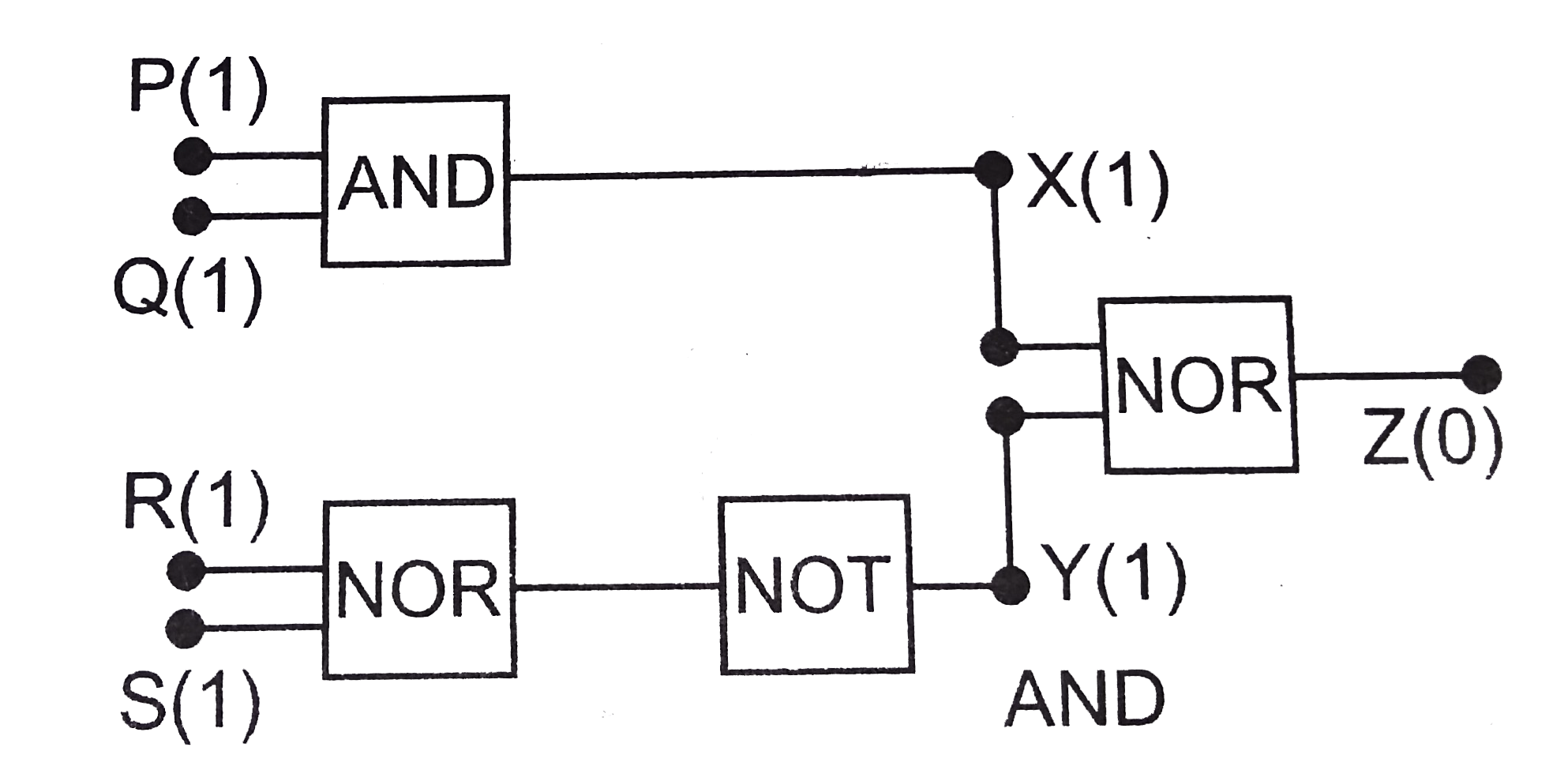
View Solution
In p-n junction diode a square input signal of 10 V is applied as shown in figure The output signal across RL will be
View Solution
In p-n junction diode a square input signal of 10 V is applied as shown in figure The output signal across RL will be
View SolutionIf in a p−n junction diode , a square input single of 10V is applied as shown
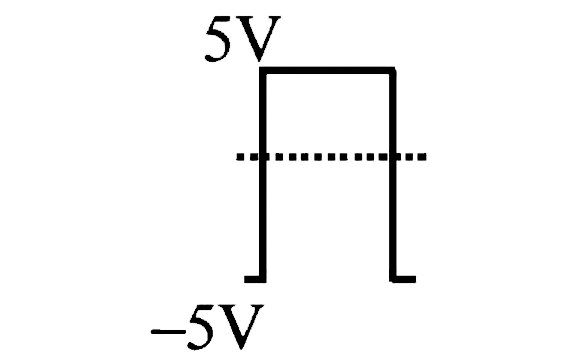
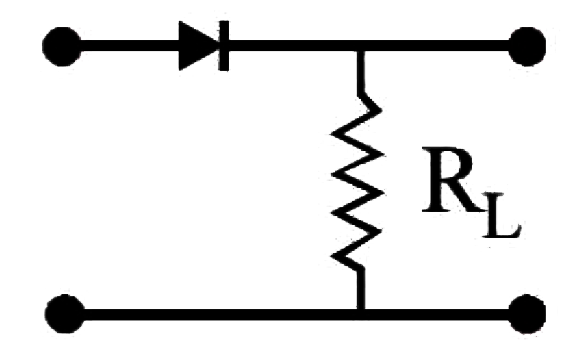
View Solution


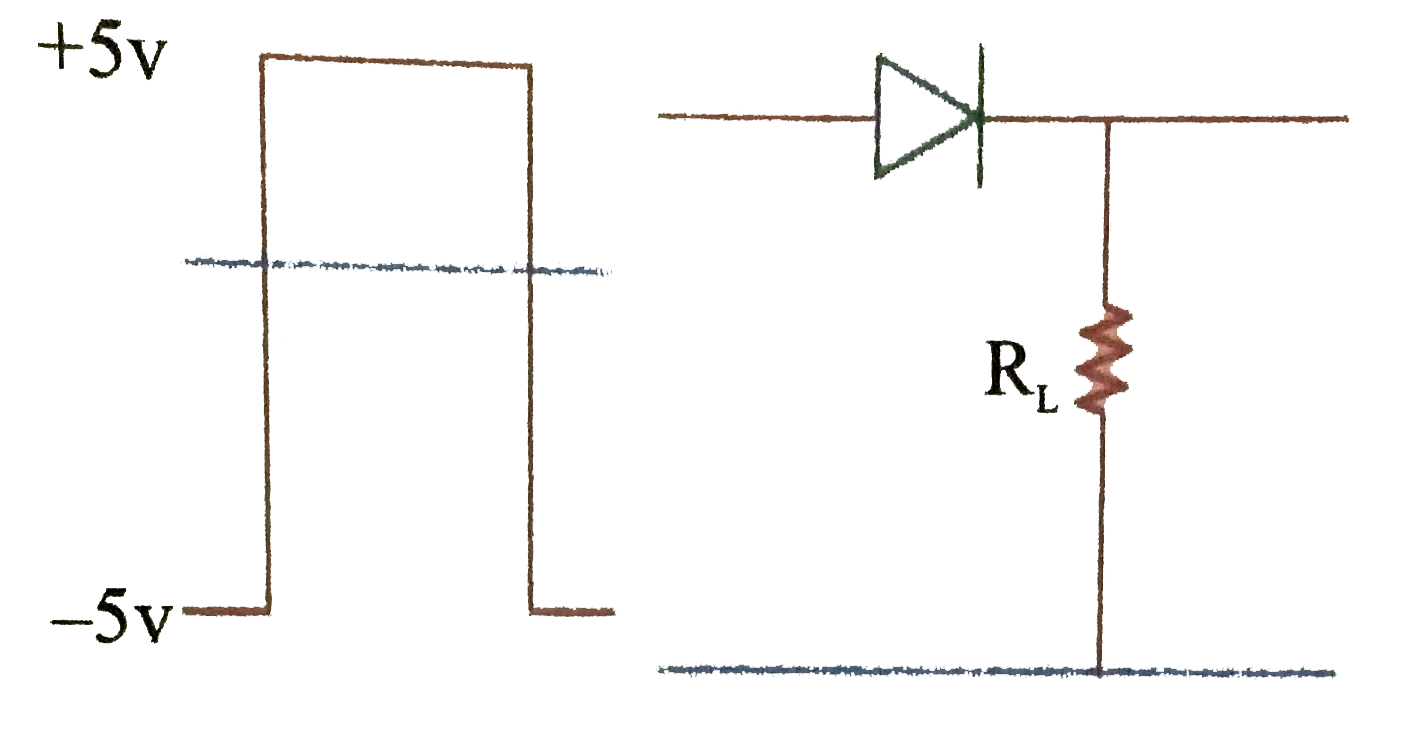
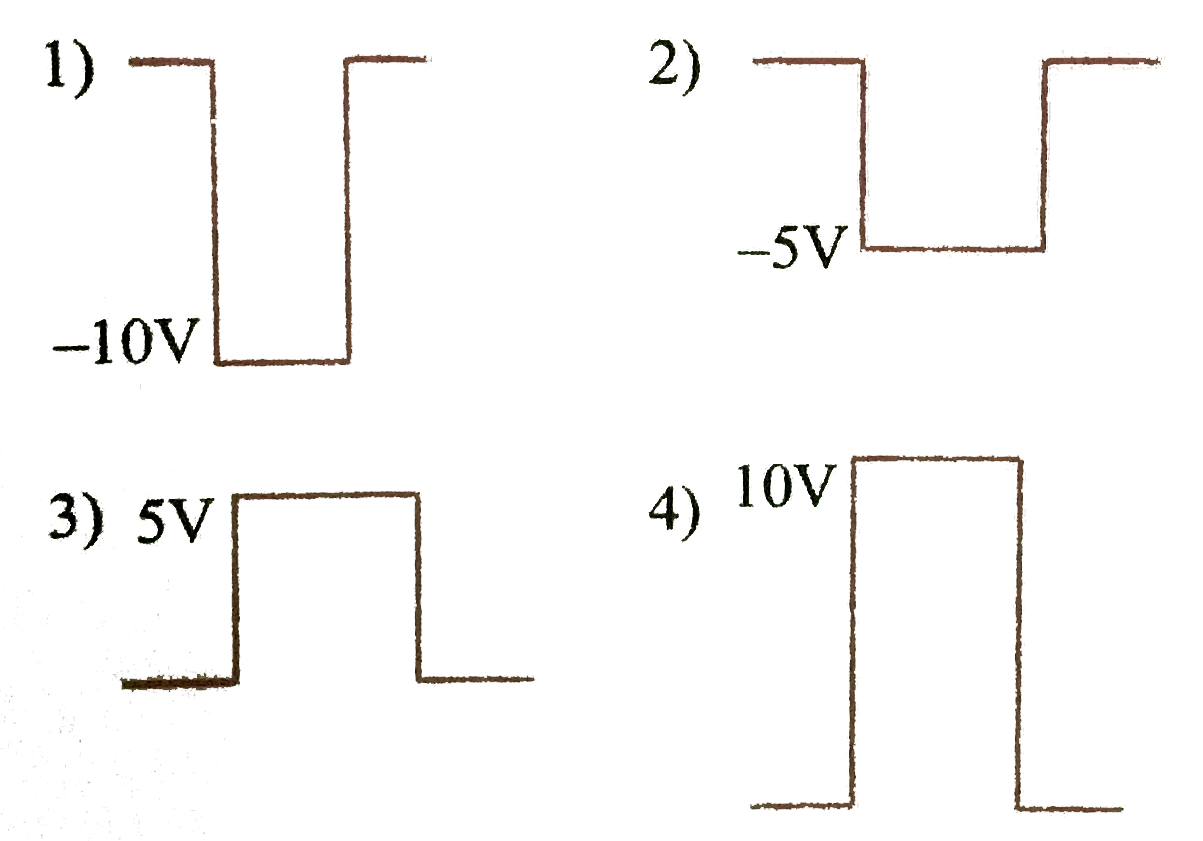 .
.